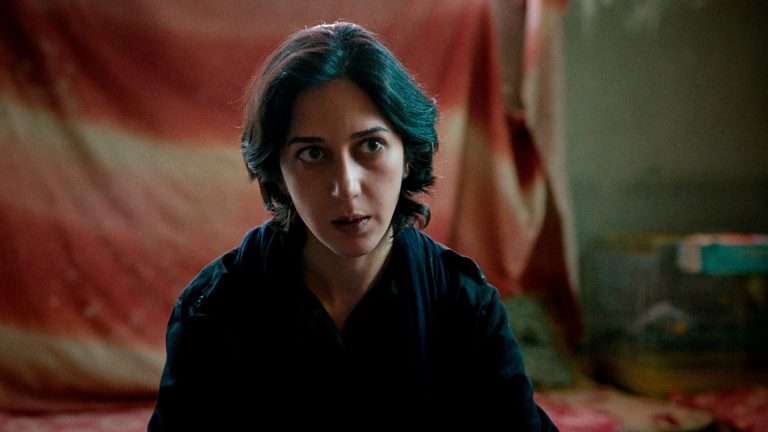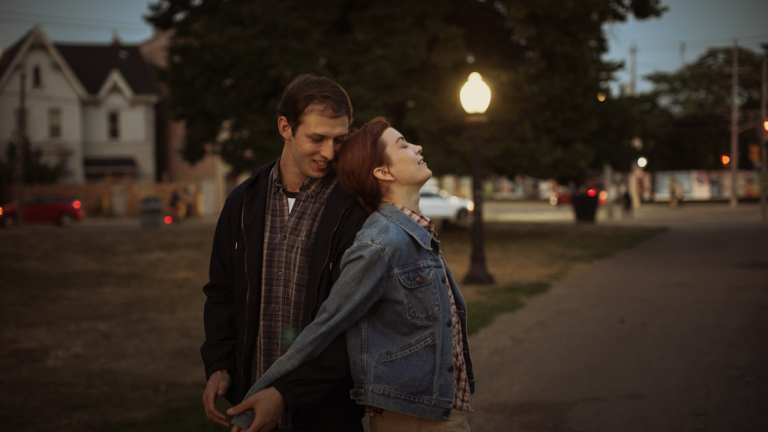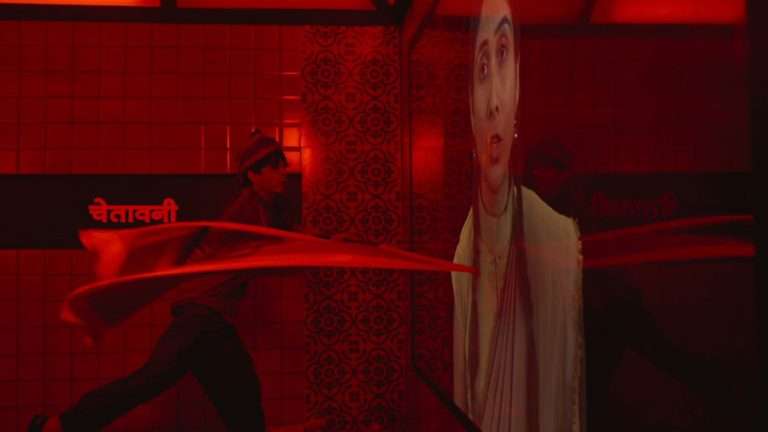Nicholas Bain’s “Voice of Shadows” doesn’t have the most inspired setup. In fact, there’s a steady abundance of rehashed tropes that are a common sight throughout. Bain can’t seem to resist sprinkling a little bit of everything in the mix. It would have spelled a bane for a lesser, workhorse-like director, but whenever he plays it subtly and not to the gallery, Bain impresses with a shivering sense of atmosphere.
As most horror films tend to feature nowadays, there’s a cult here, too. The screenplay doesn’t delve a whole lot into it, choosing to incorporate it through elusive symbols and inscriptions. It is a wise choice because it doesn’t let the film get too wrapped up in extraneous, generic details of cults. But there’s also a flip side, as in several places, the central conceits come across as being too underdeveloped and patched together in a slovenly fashion. The delineation of the setting, too, which includes a church as a key site, is sketchy and vague.
But there are ample strengths here. Despite the slim writing that skates over many scenes of crisis, Bain’s skill in orchestrating the eerie saves the day. Gabriel (Guillermo Blanco) and his girlfriend, Emma (Corrine Mica), move into a countryside mansion. Emma has been bestowed the house by her aunt, who passed. The aunt Milda gets one scene where she’s alive but makes it a point to register her kookiness. She professes she can speak to dead people. The couple pay no heed to her claims.
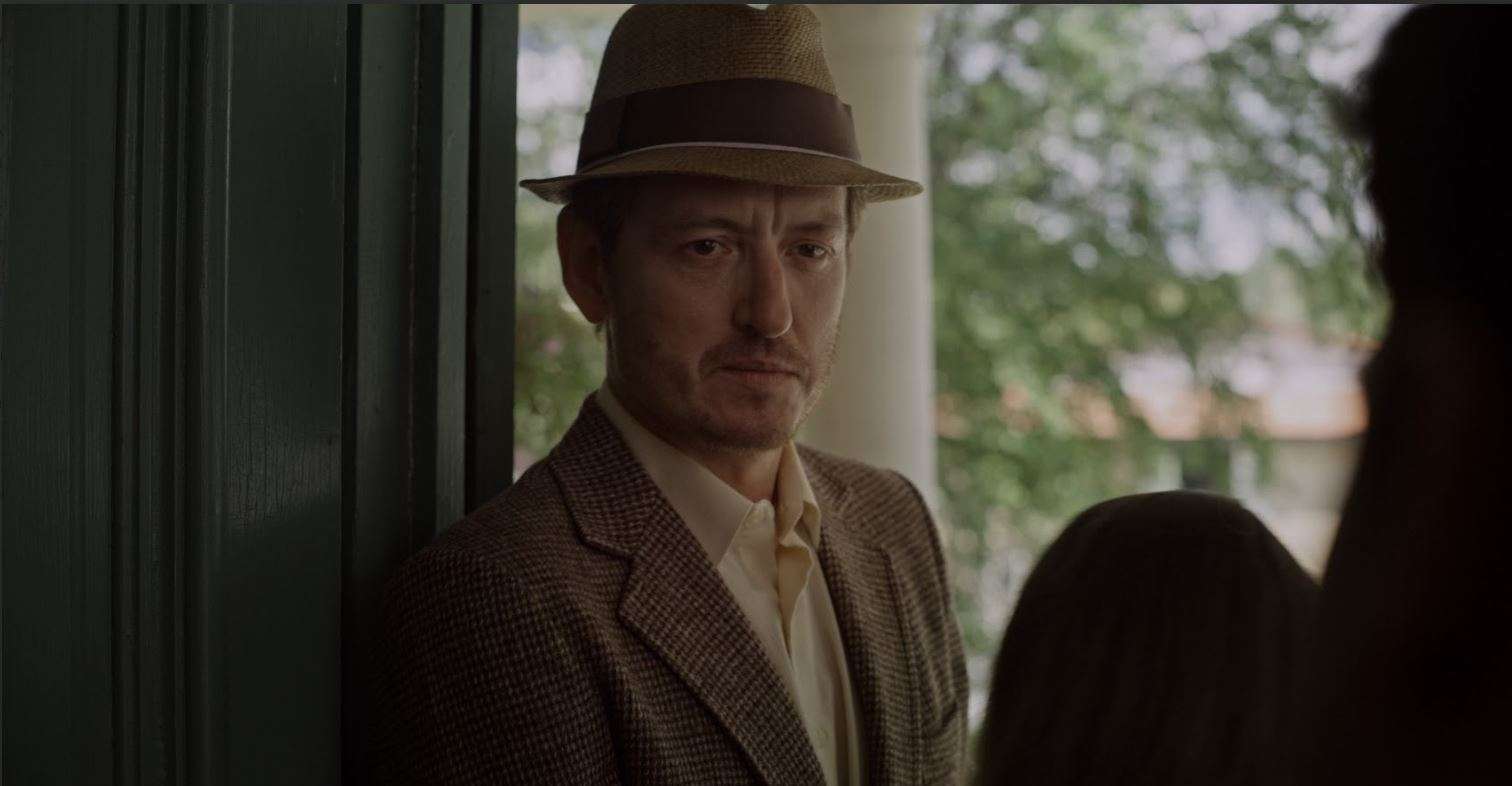
While Emma inherits the house, which comes as a salve to the couple since they have been going through a financially rocky time, she must abide by a bunch of odd terms and conditions first. Gabriel brings along his sister, Celeste, too. Quickly, however, a forced separation is made to prop up between Gabriel and the two women. He is kept in the dark while Emma and Celeste are drawn to strange places. The film grips as Gabriel scrambles around, hoping to comprehend even as both Emma and Celeste display unusual behavior. They alienate themselves from him, reassuring him everything’s fine.
Bain excels as long as he lets the unease amplify in insidious, menacing, but not overblown ways. Whenever it tips into the exaggerated and the template-ridden, the film turns flat by a couple of deteriorating notches. Good horror is fundamentally wary of a sense of balance: when can it amp up the apprehension, and to what degree are they pivotal to executing a couple of knockout scares? The film muddles this.
“Voice of Shadows” slips in its climax, falling for the trap of the same old, tired clash. It botches the already trope-y scene, furthermore desperately amping up a quick fix, momentary resolution with the same haste in which it subsequently presents unavoidable evil. Essentially, it staves off a problem in the present while holding up an irrepressible crisis for the future. The film’s handling of this is clumsy and rushed, and it is barely able to land this with any force. This is where the crucial conviction that Bain harnesses in developing a bristling, discomfiting sense of atmosphere goes entirely absent. The sheer temper rises dramatically, supplanting the sober edge that dominates the film. It’s a swerve, and the film falters in realization.
However, Bain evokes a holistic dread, which puts the viewer ill at ease. Guillermo Blanco perfectly embodies the perplexed state as Gabriel finds himself caught amidst an uncanny turn of events. Everything around him rapidly becomes disorienting. He struggles to come to grips with it. How can Gabriel pull himself, as well as his loved ones, out of the mess that’s sucking them in? As long as “Voice of Shadows” circles this looming sense of dread, it keeps the viewer hooked and wanting.



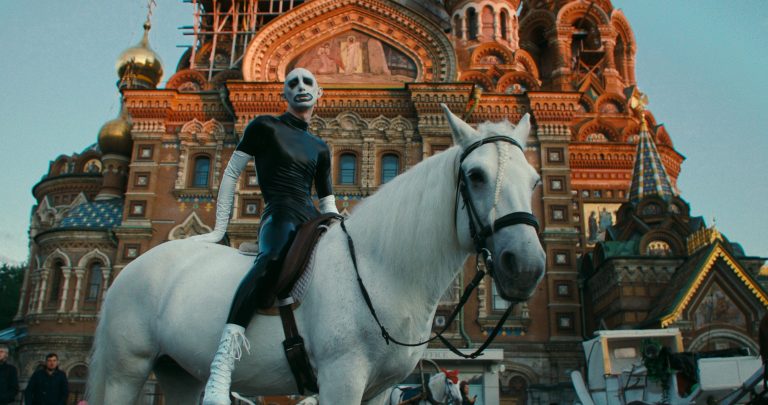
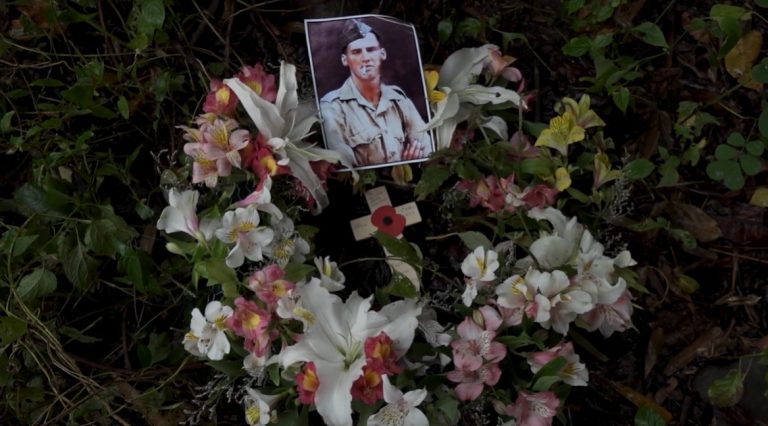
![Hridayam [2022] Review: Vineeth’s breezy love letter to a past with a lived-in feel](https://79468c92.delivery.rocketcdn.me/wp-content/uploads/2022/02/Hridayam-2022-2-768x405.png)
